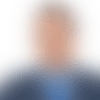Whether you're an experienced veteran with a wealth of football knowledge or a wet-behind-the-ears rookie who knows more about the Brady Bunch than Tom Brady, there are a number of rules that will assist you once your draft has concluded. Here's our list of five important guidelines that can help you take home a fantasy title.
1. Know the schedule and set a lineup each week
This might seem like an obvious rule, but I can't tell you the number of times I've seen owners fail to set their lineups. Whether a player is injured or on a bye week, he needs to be removed as a starter in order to have the best possible chance at a win. Even if that means you need to start the Packers No. 2 running back or the Raiders' No. 3 wide receiver, at least there's a chance to see some points that could lead to a potential victory.
It's also important to remember that the NFL has altered byes and schedules. Owners will have to be even more diligent with their lineups, not to mention do their work on the waiver wire. Byes start the weekend of Oct. 3 (Week 4) with four teams out of action. Four teams have byes in Weeks 5-7 and Week 10 as well, but six teams are off in Weeks 8-9. After the regular-season opener between the Vikings and Saints, there won't be another Thursday night game until Week 10, when the Ravens face the Falcons on NFL Network.
At that point in the season, there will be at least one Thursday night game every week for the remainder of the fantasy season. That includes a Thanksgiving Day lineup that includes contests between the Patriots and Lions (12:30 p.m. ET), Saints and Cowboys (4:15 p.m. ET) and Bengals and Jets (8:20 p.m. ET). A Saturday night contest will also be held on Christmas between the Cowboys and Cardinals. If your league plays through Week 17, it's important to know that all 16 games will be held on Sunday with no Thursday or Saturday games.
2. Use the waiver wire and check the transactions report
Much like life in general, the NFL season is unpredictable. Injuries will occur, depth charts will evolve and players who were thought to have minimal value will turn into valuable assets. In 2003, Anquan Boldin came out of nowhere to record 101 receptions, 1,377 yards and eight touchdowns. He wasn't drafted in most cases in his first season out of Florida State, but became a No. 1 wideout for owners who were active on the waiver wire.
In 2005, former practice-squad player Samkon Gado became the featured back in Green Bay after injuries sent Ahman Green, Najeh Davenport and Tony Fisher to the sidelines. He went on to outscore superstar LaDainian Tomlinson during a four-week stretch. Last season was no different, as the likes of Jamaal Charles, Jerome Harrison and Jermichael Finley were just a few of the players to gain immense value from out of nowhere.
In leagues that run waivers and don't utilize a first-come, first-served rule, owners should take the time each Tuesday to check out the previous week's top performers and consider potential moves to improve their rosters. Also, be certain to keep tabs on the transactions report. In many instances, owners could be quick to release a valuable player who might get off to a slow start.
Owners who are active on the waiver wire should also remember not to release a viable starter for someone who might turn into a one-week wonder. The regret for such a move could be terrible if the player is added to another team and helps that owner land a postseason berth. Instead, it's advised to take a chance on someone at the expense of a third quarterback, a fifth wide receiver, a second tight end, a kicker or a defense.
3. Make trades to improve weaker positions
The draft is very important to success in the world of fantasy football, but the team you drafted won't be the team you finish the season with in most cases. Owners who had a solid draft or were successful on the waiver wire will often times find themselves with an abundance of depth at a certain position. That depth should be utilized in trades.
For example, an owner who hoarded featured backs in the draft, or was able to add the likes of Charles or Harrison off waivers last season, should have had a nice stable of runners. However, if that same owner had less talent at another position, like wide receiver, then he/she should look to deal a back to make a roster improvement at wideout.
It's also important to know the owners in your league and their rosters in order to make the most educated trade offers. An owner who has a decent number of running backs probably won't want to add another one via trade, but someone whose backfield falters in the first few weeks of the season could be more desperate to improve and make a trade. Also, it doesn't hurt to know what teams or players the opposition roots for when it's time to make trades. If an owner is a fan of Green Bay, it never hurts to offer up a member of the Packers in an effort to improve the liklihood of a deal.
Remember, all's fair in love and fantasy football!
4. In most cases, stick with your stud players
Owners sometimes panic when their studs fail to meet expectations at the start of the regular season. Those failures turn to doubt, and that doubt makes people question whether or not to keep that stud active on a week-to-week basis. The perfect example of this occurred in the 2007 season with Drew Brees. He was dreadful in his first four starts, but bounced back to finish with career bests in passing yards and total touchdowns. Since then, he's been one of the elite quarterbacks in fantasy football.
Of course, there are a few limited exceptions to this rule. Once it became clear that Matt Forte's potential had tumbled with the addition of Jay Cutler, owners needed to make a switch. But in most cases, it's advised to stick with the studs you've drafted. Their coaches won't quit on them, and neither should you.
5. When in doubt, be confident and utilize the best matchups
Fantasy football can cause owners major headaches when it comes to those difficult lineup decisions, but the best course of action is to research the matchups and make an educated decision. Outside of the your elite superrstars, there will be times when owners will have to choose between two players with similar value.
Unless you've found a crystal ball or have an audience with Nostradamus, the best course of action is to examine the matchups, make an educated choice and stick with it. After all, fantasy football is supposed to be fun, so try not to stress out about whether or not you made the correct lineup call.
Michael Fabiano is an award-winning fantasy football analyst on NFL.com. Have a burning question for Michael on anything fantasy football related? Leave it in our comments section or send it to **AskFabiano@nfl.com**!




